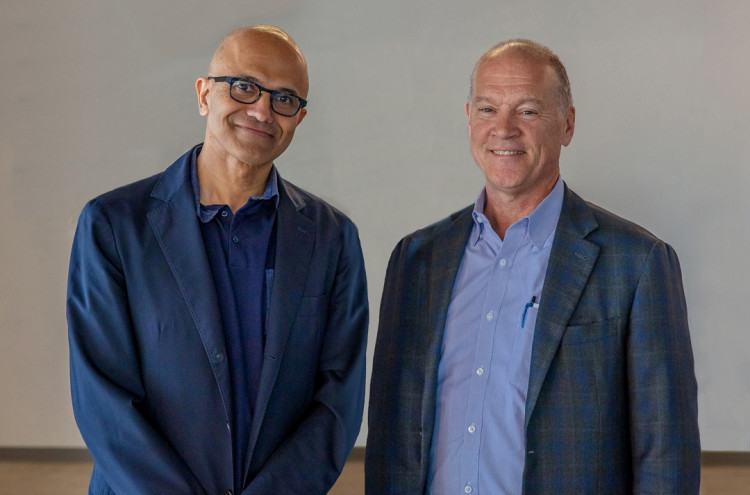Microsoft Corporation has invested $1 billion in Open AI to support the for-profit corporation's mission to develop and promote friendly AI (artificial intelligence) so this technology benefits humanity as a whole.
Building beneficial Artificial General Intelligence (AGI) in a safe and democratic fashion is OpenAI's major goal. AGI is machine intelligence with the capacity to understand or learn any intellectual task a human being can. It's been the "Holy Grail" of AI research for decades.
Under the deal revealed Monday, the investment will make Microsoft the exclusive provider of cloud computing services to OpenAI. Both firms will also work together to develop new technologies. OpenAI will also license some of its techs for Microsoft to commercialize.
OpenAI and Microsoft will work together to bring supercomputing technologies and AI to Microsoft Azure, Microsoft cloud computing service. OpenAI will run its services exclusively in Microsoft's cloud.
Ultimately, OpenAI and Microsoft plan to develop AGI, a technology some scientists claim will match or exceed human intellect. And herein lies the threat from "evil AI."
The partnership will keep "AI safety front and center" so that "everyone can benefit," said Microsoft CEO Satya Nadella after closing the deal. There has been no word on the terms of the deal between Microsoft and OpenAI.
Sam Altman, OpenAI CEO, said safety and spreading the "economic benefits" of AGI were key concerns.
"The creation of AGI will be the most important technological development in human history, with the potential to shape the trajectory of humanity," noted Altman. "Our mission is to ensure that AGI technology benefits all of humanity, and we're working with Microsoft to build the supercomputing foundation on which we'll build AGI."
Progress in developing AGI has been slow and extremely costly. A recent survey of some of the AI's leading experts revealed the average estimate was there's a 50 percent chance of creating AGI by the year 2099.
Today, however, researchers are able to develop AI software that's superhuman in specific domains like playing certain board games. These AI systems, however, can't transfer that competency from one task to another as humans do.
When it comes to general intelligence, people can't even build something as smart as a rat, famously said French-American computer scientist, Yann LeCun, Vice President, Chief AI Scientist at Facebook.
OpenAI was founded in 2015 by Elon Musk, Altman, Ilya Sutskever and Greg Brockman, who were partly motivated to do so over concerns about the looming existential threat from AGI. This existential threat is based on the theory that substantial progress in AGI might someday result in human extinction or some other global catastrophe.





